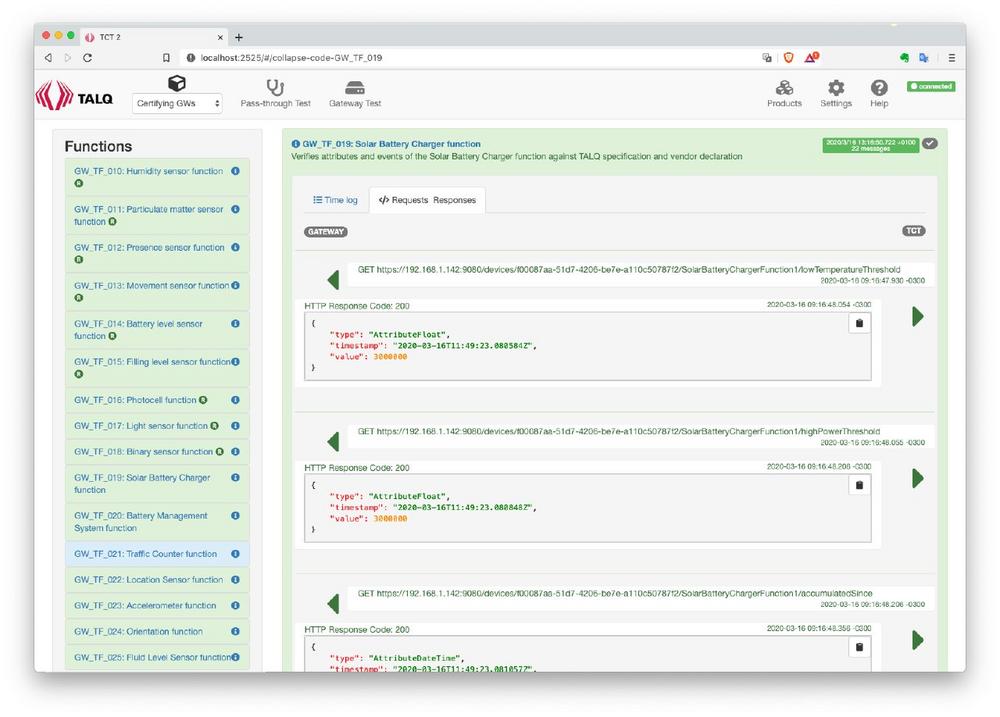TALQ Certification, the key to interoperable smart city systems

Breaking News:
Kathmandu Nepal
Dienstag, Juli 15, 2025

TALQ developed and manages the evolution of its Smart City Protocol standard. This protocol defines the ‘language’ in which Outdoor Device Networks (ODN) and Central Management Software (CMS) in a smart city communicate with each other. Or, more technically, the TALQ protocol defines the message types, data format, parameters and behavior of CMS and Gateways, to configure, control, command and monitor different types of connected devices on various ODNs. At the same time, TALQ does not constrain the protocols and network implementation of the ODN itself.
Differentiation through vendor-specific features
In order to enable integration and interoperability across a variety of CMS and ODN implementations, the Smart City Protocol defines mandatory functionality as well as a rich set of interoperable optional features. The most commonly used and important operations are covered by mandatory functionality. Optional features are defined to address frequently-requested additional functionality and requirements of smart city applications. TALQ-compliant CMS and Gateway implementations can also implement supplier-specific ‘events’ and ‘attributes’ using standardized mechanisms.
To ensure that each certified system with its own set of features can communicate flawlessly with other certified systems, a comprehensive set of test cases has been integrated in the TALQ Certification Test Tool. To provide transparency for TALQ members and their customers, a ‘capability list’ of every product is published after TALQ certification has been awarded. These capability lists show exactly which features have been confirmed and provide the greatest confidence for customers. For additional information customers can request the detailed test report from any vendor.
“We are really proud of our elaborated Test Suite and test procedures, which have proved to be extremely reliable with more than 20 certified products today. But even more we are proud of the energetic TALQ community which works to develop additional requirements and test cases every month to allow further smart city applications to be included in the standard”, reports Simon Dunkley, Secretary General, TALQ Consortium.
Founded in 2012, the TALQ Consortium is establishing a globally accepted standard for management software interfaces to control and monitor heterogeneous smart city applications. The TALQ Smart City Protocol is a specification for information exchange, suitable for implementation in various products and systems. This way interoperability between Central Management Software (CMS) and Outdoor Device Networks (ODN) from different vendors will be enabled, such that a single CMS can control different ODNs in different parts of a city or region.
TALQ is an open industry consortium currently consisting of more than 45 member companies.
For more information visit www.talq-consortium.org
Certified TALQ-Compliant Products (TALQ Version 2):
Central Management Software (CMS):
– CityLinx from BeeZeeLinx, France
– City Vision from Capelon, Sweden
– LightingGale from CIMCON, USA
– StreetMan from Dhyan, India
– inteliLIGHT CMS from Flashnet, Romania
– SLV CMS from Itron, USA
– SmartLinx from LED Roadway Lighting, Canada
– LuxSave Streetlight CMS from LuxSave, Sweden
– CityMESH CMS from SICOM, Chile
– PLANet from Telensa, United Kingdom
– Smart Firefly from Uvax, Spain
Outdoor Device Network (ODN) / Gateway:
– Citybox from Bouygues, France
– NearSky from CIMCON, USA
– Flashnet IoT platform from Flashnet, Romania
– SLV Gateway from Itron, USA
– Ki from Lucy Zodion, United Kingdom
– Owlet IoT from Schréder, Belgium
– SELC Gateway from SELC, Ireland
– CITY GATEWAY from SICOM, Chile
– Access Point System from Smartnodes, Belgium
– T-Light Gateway from ST Engineering Telematics Wireless, Israel
– Trilliant TALQ Gateway from Trilliant, Canada
– CA-13 from Uvax, Spain
– Witti TALQ Gateway from Witti, France
TALQ Consortium
445 Hoes Lane
USANJ 08854 Piscataway, NJ
Telefon: +1 (732) 4655817
Telefax: +1 (732) 981-9473
http://www.talq-consortium.org/
![]()